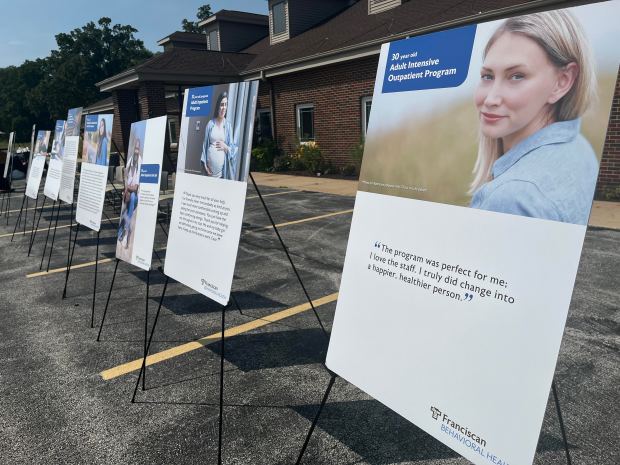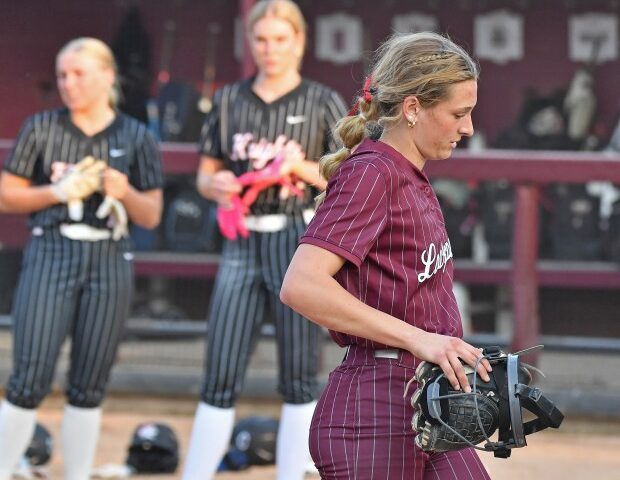To spread awareness of deaths by suicide in the south suburbs and Northwest Indiana, the nonprofit Catholic hospital system Franciscan Health promoted community resources in what care providers hope will become an annual event.
“I think we can save lives somehow,” said Hangie Hawkins, community education coordinator for Franciscan Health’s behavioral services.
Hawkins, who came up with the idea in June to hold an awareness event at Franciscan Health’s Dyer campus during Suicide Prevention Month, said she hoped to provide a space for discussion of an issue personal to her.
“I had a my first crisis when I was 19 years old, and I did attempt suicide,” said Hawkins, who showed up to the awareness event 30 weeks pregnant. “I’m one of those success stories out there.”
According to most recent national data from the Centers for Disease Control and Prevention, suicides increased 2.6% from 2021 to 49,000 people in 2022. One person dies by suicide every 11 minutes.
In Illinois during the same period, suicides rose 7%, from 1,440 to 1,541 people. Suicides in Indiana slightly declined from 2021 to 2022, though rates in the state are higher than the national average.
At Franciscan Health’s event Thursday, about 20 area organizations providing behavioral health resources hosted booths and handed out flyers to interested hospital workers. Hawkins said a major barrier to support for people struggling with their mental health is understanding the resources available to them, which she hopes to combat with more education of health professionals.
Franciscan Health also holds free courses taught by clinical therapist Cathy Cinko for anyone interested in learning how to recognize warning signs of suicide and how to help prevent it. Cinko said the Question, Persuade and Refer course trains people on how to react in the face of a mental health crisis and potentially save a life.
“I think that’s no different from CPR,” Cinko said. “Anything that we could do to intervene early or when we recognize the sign, it’s going to be a positive action to impact that person’s life.”
Cinko said she doesn’t know exactly why Illinois saw such a sharp increase in suicides compared to the U.S. overall, but said higher rates of certain types of crime and accessibility of firearms may play a role. Firearms account for 55% of U.S. suicides, followed by suffocation and poisoning, according to the CDC.
But Cinko said she is hopeful courses like hers will make a difference. She said there are more than 7 million people trained as suicide “gatekeepers” and, as the stigma surrounding mental health support lessens, she said their impact will be reflected in the data.
For people in need of help or who know somebody in need, the national suicide and crisis lifeline in the U.S. is available by calling or texting 988. There is also an online chat at 988lifeline.org.
ostevens@chicagotribune.com





